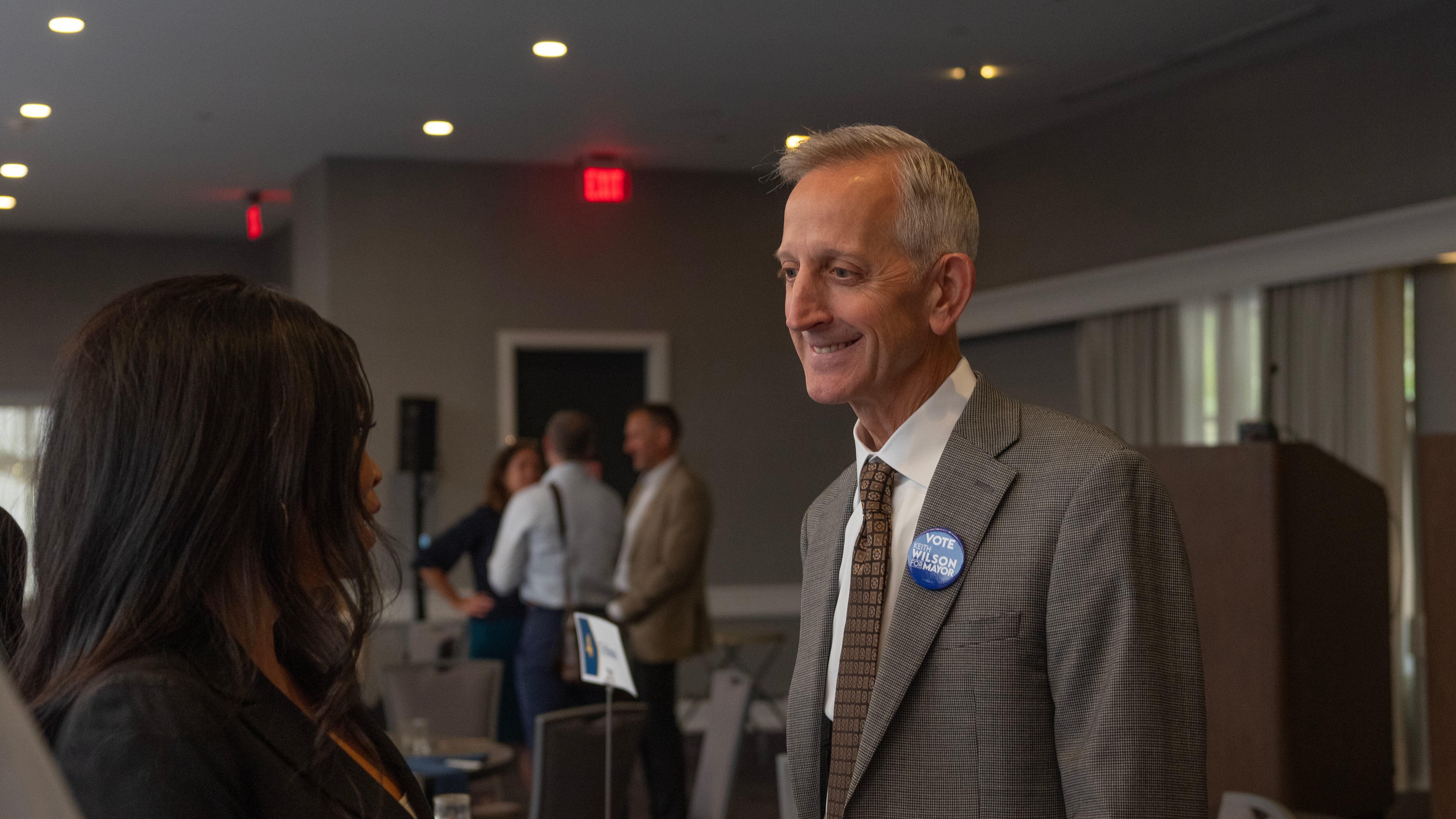Rich Schlackman, a top Democratic Party campaign consultant out of Arizona who was key in the successful recall of San Francisco District Attorney Chesa Boudin in 2022, is creating an independent expenditure campaign to help freight company owner Keith Wilson become Portland’s next mayor.
Keith Wilson, who owns a 70-employee freight company based just outside of Portland, is seen as one of the top three candidates for mayor in the upcoming November election. Wilson’s campaign, which is focused on ending unsheltered homelessness within one year, gained some initial steam this spring but over the summer appeared to lag behind the two front-runners, current city commissioners Rene Gonzalez and Carmen Rubio.
But the mayor’s race—up until a month ago considered a two-person showdown—is now more of a toss-up. That’s because news stories earlier this month revealed the spotty driving records Rubio and Gonzalez. (Rubio’s record is far poorer than Gonzalez’s.) That means Wilson has a window of opportunity he didn’t have even one month ago to become a top contender in the race.
Schlackman, when reached by phone in Arizona, said he’s setting up the independent expenditure in the next few days and is aiming to raise at least a couple hundred thousand dollars to boost Wilson’s candidacy.
“I’ll get some money. It’s a question of whether I’ll get enough money to make a difference,” Schlackman says. “I don’t have the natural constituency of the labor unions and certain businesses. I know the people around Rene’s independent expenditure…and I know what labor could do [for Carmen’s campaign].”
Schlackman’s independent expenditure for Wilson means Rubio, Gonzalez and Wilson will all benefit from independent expenditure campaigns set up on their behalf. Such political action committees are not subject to campaign finance limits, so they can boost campaigns normally limited by state and local campaign finance limits. Rubio’s independent expenditure is likely to be bankrolled by labor unions; Gonzalez’s independent expenditure will be funded by industry groups and downtown developers, and so far has raised $70,000.
Schlackman is the principal of RMS Associates, a political consulting firm based in Phoenix, Ariz. Oregon campaign finance records show RMS did consulting for the campaign of Multnomah County District Attorney-elect Nathan Vasquez, who is set to replace current District Attorney Mike Schmidt at the start of the year after beating him in the May primary. Business interests and downtown developers backed Vasquez, a senior deputy district attorney who works under Schmidt and is critical of Schmidt’s progressive policies, in his May victory.
Wilson’s campaign so far has raised $234,000—not that much less than Gonzalez and Rubio’s campaigns.
Wilson’s ambitious plan to end unsheltered homelessness has received both applause and criticism from onlookers. Critics say it’s an unrealistic plan that takes into account none of the realities of the complications of the homelessness problem. Supporters say it’s the type of clear-eyed ambition that current Portland leaders lack.
Wilson pledges to open over 20 nighttime shelters within 90 days of being elected, creating more than 2,000 new shelter beds in community centers, churches and businesses. Wilson says he’d keep the costs of a bed to no more than $19 per night. WW wrote about Wilson and his ambitious homelessness agenda in an August story.
Schlackman says he’s targeting “normal” business owners for the independent expenditure. ”I’m not going to have a billionaire on my side,” he says.
“I don’t have the natural constituency of the labor unions and certain businesses,” Schlackman concedes. “We don’t compare to what the other two independent expenditure campaigns [for Carmen and Rene] are.”
But Schlackman says the use of ranked choice voting to elect the mayor come November means Wilson still has a shot, especially if he can increase his name recognition in the coming weeks.
“I see Keith potentially getting a lot of second-place votes,” Schlackman says. “It really matters.”
Wilson did not immediately respond to a request for comment.

